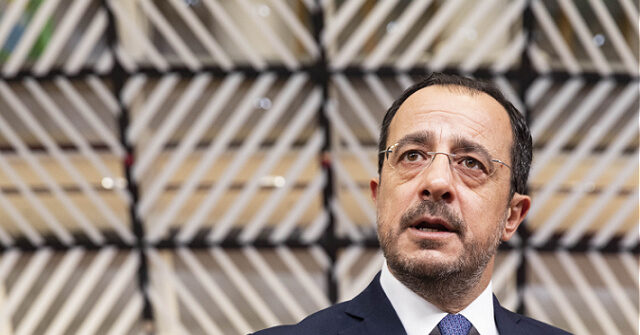Cyprus President Nikos Christodoulides announced the appointment of a new Special Representative for religious freedoms, Thessalia Salina Shambos, to advocate for the rights of Christians and other religious minorities in the Middle East. In a recent interview with Breitbart News, Christodoulides underscored the critical need for this role, especially in light of escalating tensions affecting religious groups in the region, particularly post-Assad regime in Syria and ongoing conflicts involving Israel, Hamas, and Hezbollah. The government aims to initiate constructive dialogues with regional states and neighboring nations, while also raising awareness within the European Union about the plight of these religious minorities, ultimately seeking more comprehensive support for their rights.
Shambos, who previously served as the political director in Cyprus’s Ministry of Foreign Affairs and as the country’s ambassador to Israel, is charged with fostering communication among state actors to enhance the rights of minority groups and finding sustainable solutions to the challenges they encounter. Her role also extends to promoting multilateral discussions that integrate Christian minorities into regional political frameworks, alongside facilitating humanitarian initiatives aimed at enhancing communal services like education and health specifically tailored for these populations. Crucially, safeguarding cultural heritage, especially the restoration and protection of religious landmarks, forms a core aspect of her responsibilities, highlighting Cyprus’s vision to act as a cultural bridge between Europe and the Middle East.
The announcement holds significant implications for Christians in the Middle East, particularly in countries where their rights have been increasingly compromised due to political upheaval and sectarian strife. Shambos’ appointment aligns with the broader strategy of the Cypriot government to leverage its historical Christian identity and geographic proximity to advocate for religious freedom. As a Christian-majority nation situated just 60 nautical miles from strategically critical countries like Syria and Lebanon, Cyprus emerges as an essential ally for Western interests in promoting stability and protecting vulnerable groups in the region, especially in the context of the ongoing humanitarian crises tied to conflicts in Syria.
Cyprus Foreign Minister Constantinos Kombos praised Shambos for her extensive diplomatic experience and her prior accomplishments in managing aid negotiations with the U.S. under the Biden administration. He emphasized her reputation and trustworthiness in international circles, positioned as an “amazing professional” who can effectively amplify the voice of minority communities in political dialogues. Such endorsements reflect a concerted effort by the Cypriot government to strategically engage with powerful international players like the U.S. to ensure the visibility and protection of these communities in regional crises that often see them as overlooked stakeholders.
Moreover, Kombos articulated Cyprus’s pivotal role as a conduit for EU engagement with the Middle East, especially in light of the newly emerging challenges following the dissolution of the Assad regime. He highlighted the urgent need to safeguard cultural heritage and ensure robust support frameworks for minorities, particularly Christians, in Syria and beyond. As the only EU member state that is not a NATO member—an unfortunate outcome of ongoing hostilities with Turkey—Kombos articulated Cyprus’s commitment to enhanced defense and security cooperation with the U.S. He expressed a desire for U.S. policymakers to reflect on the potential inclusivity of Cyprus’s voices in regional political processes, reinforcing the nation’s capability to facilitate various dialogues vital for addressing minority rights and regional stability.
Additionally, as Cyprus prepares to assume the Council of the European Union’s presidency in the first half of 2026, Kombos outlined ambitious plans for strengthening EU-Middle East relations. He reiterated the commitment to prioritize religious freedom and human rights across the region, envisioning initiatives that could foster deeper partnerships with Gulf nations and address pressing security concerns. By positioning itself as a reliable partner in promoting inter-religious dialogue and enhancing geopolitical security, Cyprus signals a proactive approach to regional challenges while ensuring that the voices and rights of vulnerable groups, particularly religious minorities, remain at the forefront of its diplomatic efforts. Thus, the appointment of Shambos and the subsequent initiatives reflect Cyprus’s strategic framework for championing minority rights in a turbulent region increasingly fraught with complex socio-political dynamics.

